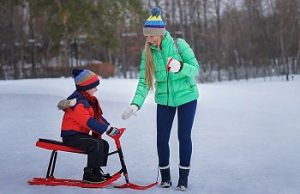
We all feel overwhelmed when we first become parents. Most of us are faced with the question of how best to raise our precious children. We can appreciate some tips for first time parents.
Lucky for us, we didn’t have to start from scratch. We had a list from my parents when they were raising my brother and me.
Over the years since our kids first arrived, we’ve put together a list of tips from our own experiences and those of our friends.

Also, we have an advantage in having a Pediatrician in Sara’s community of parents’ group. And, Amanda is one of the best pediatricians in her area (and an M.I.T. graduate!).
Before including this list of tips for successful parenting, we asked Amanda about the goals for raising great children.
Her immediate response was that our primary goal is to raise confident, self-reliant children who had the interpersonal skills to be successful as children and adults.
“We don’t want to do everything for our children, we want to teach them the skills and self-reliance so that they can succeed without us.”
Stay calm, make it fun, self-reliant kids.

2. Don’t over-parent.
3. Actions and words.
4. Co-parenting – be consistent.
5. Loved and valued.
6. Physical health.
7. Logical actions.
8. Emotion affects actions.
9. Empower your children.
10.Allow for success and failure.
11.Encourage creativity.
12.Goal oriented or/and journey oriented.

Here’s our list of 12 parenting tips for toddlers and young children:
1. Teach problem solving skills.
Our role as parents is to help our children build problem-solving skills. It’s easy to fall into the habit of fixing problems for your kids. But we shouldn’t fall into that trap. Instead, take every opportunity to teach your kids the skills they would need to solve the same problem.
Our role as parents is to help our children build problem-solving skills.
2. Don’t over-parent.

Don’t be a “helicopter parent to your kids”.
Your children will learn from their own successes and failures.
Let them grow their skills as they grow. We want to teach them the skills and self-reliance so that they can succeed without us.
3. Actions and words.
Make your words and action reflect what you want to teach your kids. Children are much better than you think at observing inconsistent behaviors and their parents.
Ensure that your actions reflect what you want to teach your children, and that what you say to them has consistency and follow-through.
Mean what we say. Do what we preach.
4. Co-parenting tip – be consistent.
You will be surprised at how soon children learn that if they don’t like mom’s answer, go ask dad or vice versa.
It’s important that both parents have consistent and supporting answers. It helps if you and your spouse can set your guidelines between yourselves early on.
Conflicting messages will confuse your kids and make your life harder.
5. Loved and valued.
Make your child feel loved and valued. Don’t be shy about expressing your love or how much you appreciate any accomplishment of your child. You’ll find this pays significant dividends in their own self-confidence and ability to withstand peer pressures.
6. Physical health. These are growing years– physically, mentally, and emotionally.
Physical development and health are important. You can help your child with a regular medical care, a good diet, and exercise.

Playtime is important. Our pediatrician friend, Amanda and her family are active campers and hikers. They frequently take a weekend day to visit the beach or a science museum.
7. Teach Logical actions.
Help your children understand the logical consequences of actions and how to think logically. These are important steps to help guide them in making good choices.
8. Teach them about emotion.
Children have strong emotions, and they see emotions in their friends and adults.
Help them understand how emotions can affect their actions. Point out examples as they see emotion-and-action in their everyday life.
9. Empower your children.
Remember our goal is to develop capable and self-reliant children. Empower them in decisions both small and large.
My folks used this little trick on my brother and me when we were little. We have now adopted the same approach in our family. Let me tell you – this little trick works even with toddlers.
- Whenever you go somewhere as a family, decide how much money you think your child should spend.
- This might be on treats, or toys, or T-shirts.
- Then give your child that money up front. You may carry it for them, but make sure it’s in a separate place that they are aware of.
- Then every time your child wants something, offer them the choice of buying it with their own money.
- You will find that, even as a toddler, your child will rapidly learn the value of money and how to choose when to spend that money.
- A great side benefit is that they won’t constantly be tugging at your clothing asking you to buy them something.
10. Allow for success and failure.
We can’t win all the time, and that’s an important lesson to teach your child.

We often learn more from failure than we learned from success.
So don’t try to always leap in and make your child successful.
They can find lessons in what happens with their failure.
11. Encourage creativity.
Your child is his or her own person. Let his or her creativity shine. Creativity can come out both in individual activities (like drawing or molding clay) or in group activities.
If you have a group of parents like we do, a single parent or two may do an activity that helps the creativity of all the children in the group.

For example, my mom used to invite my brother’s friends and my friends (when we were kids) over every Christmas to build gingerbread houses from scratch.
Every house looks delightfully different, and the kids all take them home for Christmas decorations or just to eat.
Now, I am the host for the “gingerbread day” in our group of parents.
Another parent in Sara’s group found an absolutely delightful art school that caters to children from toddlers on up.
12. Teach children to be Goal oriented or/and journey oriented.
Often what we’re trying to accomplish is embodied in a goal. Sometimes it’s embodied in the journey itself.
Talk with your child about goals. These certainly should be age-appropriate goals.
Talk to your child about journeys that they may take or imagine. What obstacles will there be along the way–what will it take for that journey?
We found that stories can be a good vehicle for this. Often stories involve a specific goal or quest or a journey.

My Dad is a prolific storyteller, whether around a campfire or at bedtime.
His stories always involve a quest of some sort and a goal that is reached and more than a little imagination.
Often, the stories are participative, and even toddlers can contribute imaginative characters and twist stories.
Both Sara and my households have adopted this “storyteller” from my Dad. Madison will soon adopt this technique when Tia is bit older.
Closing thoughts
While these tips have worked for us, we’re certain that you will develop your own tips and skills over time.

Learning these key skills for future life is much easier and more exciting when you’re having fun doing it!
And, as a parent, you want to fully enjoy your time with your child.
We believe all parents strive to do what is best for their children. We all want to raise self-reliant children that will contribute to society both as children and as adults.
Baby Mine Store is all about parents helping parents . If we can help other parents with knowledge we shared, we will have achieved our goal of helping us all be better.